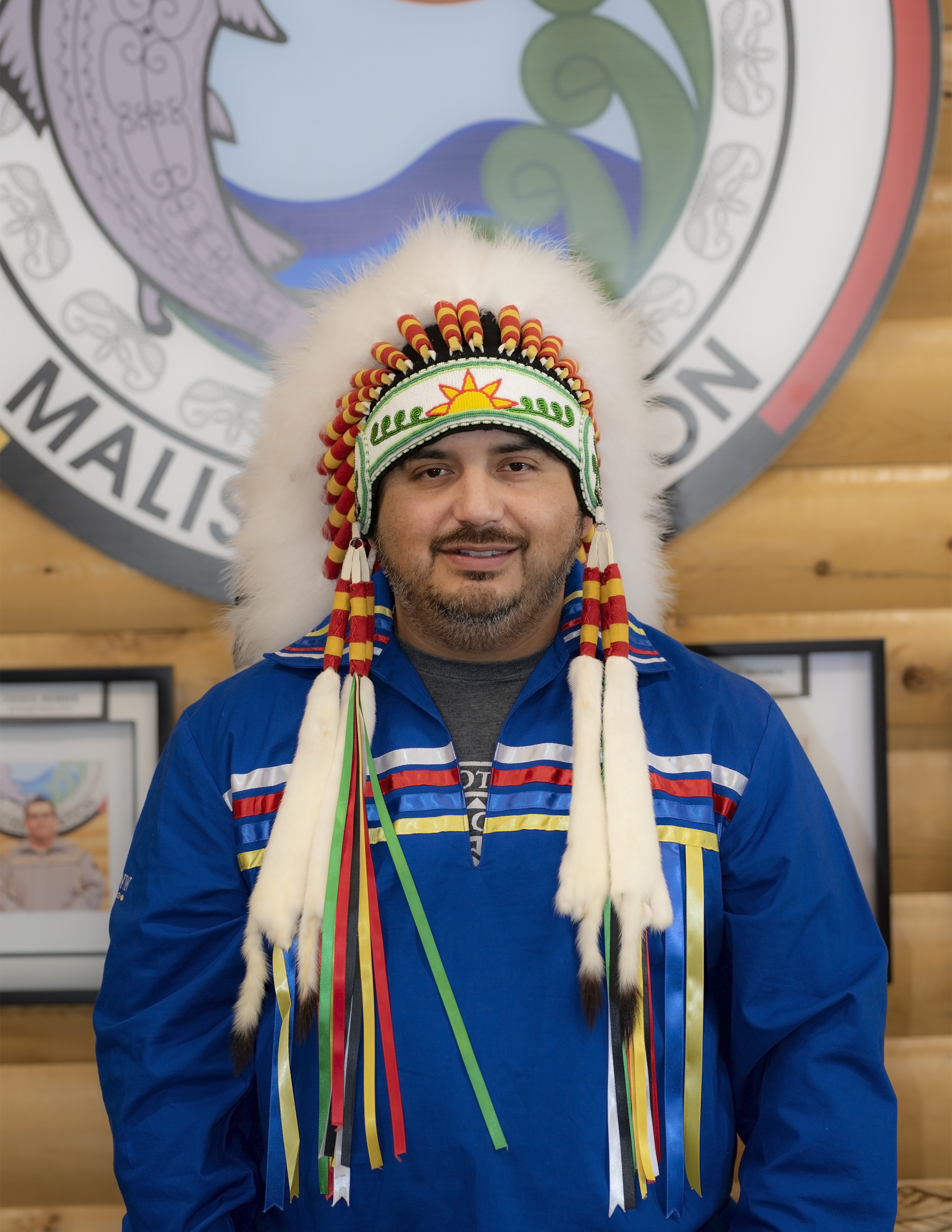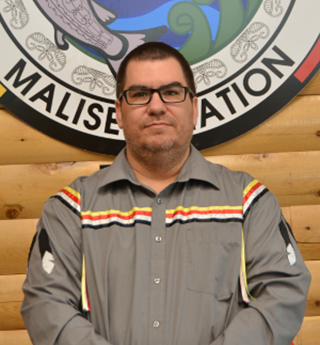Wolastoqey chiefs add forestry companies to title claim case
Legal win would let harvesting continue with Indigenous approval
Wolastoqey chiefs in New Brunswick are shifting their Aboriginal title claim case to pursue the province's largest forestry companies in a bid to reclaim title to much of their traditional territory.
The six chiefs have amended the legal claim they filed last year to add J.D. Irving Ltd. and its subsidiaries, Twin Rivers Paper, the A.V. Group, Acadian Timber and H.J. Crabbe and Sons.
They say the companies operate on about 20 per cent of the more than five million hectares the chiefs identify as Wolastoqey traditional lands in New Brunswick.
 The Wolastoqey say the J.D. Irving Ltd. companies and subsidiaries operate on about 20 per cent of the more than five million hectares the chiefs identify as Wolastoqey traditional lands in New Brunswick. (submitted Wolastoqey Nation of New Brunswick)
The Wolastoqey say the J.D. Irving Ltd. companies and subsidiaries operate on about 20 per cent of the more than five million hectares the chiefs identify as Wolastoqey traditional lands in New Brunswick. (submitted Wolastoqey Nation of New Brunswick)
"They are the largest landowners in New Brunswick, and they have had a history of getting land from the province without paying a fair price for it," Chief Patricia Bernard of the Wolastoqey Nation of Matawaskiye (Madawaska) said at a news conference.
"That is our land that the province gave away for a song. We want back what is ours, that was never theirs to give."
The change to the lawsuit puts the legal action on two tracks, seeking compensation from governments for the loss of some parts of the territory, but claiming ownership of the parts used by industry.
"Aboriginal title on the traditional lands ... does not seek to displace regular New Brunswickers from their homes and farms," the chiefs say in a news release.
But winning clear recognition of title for land used by industry would make the Wolastoqey landlords and give them final say in how the companies harvest wood there. They would also be able to receive some or all of the royalties that now go to government.
A ruling in favour of the Wolastoqey Nation would allow forestry to continue, said the release, "as long as corporations had an agreement with the Nation over activities on their land."
The chiefs say the case could take a decade or more to go through the courts, so it's too early to say what kind of forest management system they might put in place if they win.
But they say getting a share of the revenue from harvesting is overdue.
"These are our resources. They were never ceded through treaty and we're not the ones generating wealth off them," said Chief Ross Perley of Wolastoqey Nation at Neqotkuk, also known as Tobique First Nation.
"Companies in the province have been accumulating wealth from our resources for the last hundred years. We feel that it's our turn to get our share of wealth and make our communities sustainable."
 Chief Patricia Bernard of the Matawaskiye (Madawaska) First Nation (Jacques Poitras/CBC)
Chief Patricia Bernard of the Matawaskiye (Madawaska) First Nation (Jacques Poitras/CBC)
N.B. Power is also named in the claim — the only non-forestry industry player identified. In the utility's case, the Wolastoqey First Nations could claim revenue from its generation and sales of electricity.
The new claim replaces the one filed last year. The new version keeps the federal and New Brunswick governments as defendants.
Last month, the Higgs government ordered government employees to stop making public land acknowledgements that the province sits on unsurrendered and unceded Indigenous territory.
At the time Attorney-General Ted Flemming said the acknowledgements might compromise the province's position in the land-claim case and implied that the Wolastoqiyik wanted to take back all of their traditional territory.
Bernard called that "clearly an attempt to deceive and create fear amongst New Brunswickers."
She said that's why the claim has been amended to make clear "the rights of everyday New Brunswickers will not be impacted" by the claim.
The claim is based on Peace and Friendship treaties signed by the Wolastoqiyik and the British Crown between 1725 and 1778.
The chiefs say those agreements did not provide for the surrender of any land.
CBC's Journalistic Standards and Practices
https://www.cbc.ca/news/canada/new-brunswick/title-claim-higgs-wolastoqey-1.6270141
Higgs says private citizens' property rights could be jeopardized by Wolastoqey lawsuit
Chief Patricia Bernard calls premier's stance fear-mongering, says 'we're not going after New Brunswickers'
Premier Blaine Higgs says a revised Aboriginal title claim filed in the Court of Queen's Bench could impact some of the basic principles society runs on.
At a news conference held Wednesday afternoon, Higgs and Natural Resources Minister Mike Holland voiced concerns about the revised claim.
Higgs said the claim creates "tremendous uncertainty" for individuals buying land or building a business in terms of being sure of "the assets they actually own."
"Never before has a claim of this nature attempted to take control of land that is privately owned," he said.
The original lawsuit, which asks the courts for clear title to 60 per cent of New Brunswick's landmass, was filed a year ago.
But on Tuesday, Wolastoqey chiefs announced that J.D. Irving Ltd. and four other forestry companies, as well as N.B. Power, have been added as defendants.
The chiefs say those companies benefit from "sweetheart deals" that were made with the province on territory that was never surrendered by the Wolastoqey Nation.
Natural Resources Minister Mike Holland said the lawsuit could hurt New Brunswick's $2-billion forestry industry and one of the province's top exports.
"The strength of this sector keeps food on the table for one in 14 New Brunswickers whose jobs are linked to the health and growth in this sector," said Holland.
The chiefs have said they don't aim to seek compensation directly from the forestry companies.
But if their claim succeeds and they become the landlords, they would negotiate new deals and have a say in how the forests are managed.
Holland said the government is still trying to understand how that could impact the entire economy.
"It's your neighbour who owns a harvester," he said. "It's the private woodlot owner that's working to move their product through the supply chain. It's also the small mill that makes value-added products that employ local men and women all throughout the province."
 Chief Patricia Bernard of Madawaska First Nation had predicted Higgs would try to frighten New Brunswickers into opposing the Aboriginal title claim. (Logan Perley/CBC)
Chief Patricia Bernard of Madawaska First Nation had predicted Higgs would try to frighten New Brunswickers into opposing the Aboriginal title claim. (Logan Perley/CBC)
'This is fear-mongering,' chief says
Patricia Bernard, chief of the Madawaska First Nation, had predicted Tuesday that Higgs would try to scare New Brunswickers into going against the claim.
After the news conference, she told reporters the government was fear-mongering, and she wasn't surprised.
"This is not a land claim," Bernard said. "This is an Aboriginal title declaration."
"The only thing that we're seeking back is the land from these corporations, not a land claim for our traditional territory."
Bernard also emphasized that point on Tuesday, when she assured residents that the chiefs are not coming for the homes and farms of ordinary New Brunswickers.
"Let me speak for a minute to New Brunswickers who have homes on our traditional lands and who rightfully have many questions about this development," she said.
"While we are seeking title to our territory, the Wolastoqey Nation does not want to displace you from your homes."
She noted that "the only private landowners we are trying to get land back from are these six: J.D. Irving Ltd., AV Group, Acadian Timber, Twin Rivers Paper. H.J Crabbe and Sons, and N.B. Power.
"If you're not one of these companies, you have nothing to worry about."
Bernard admitted Wednesday that title claims can be confusing but said it's a legal principle that the province needs to better understand,
"Our intent is not to bankrupt this province," she said. "That would be ludicrous."
Asked if the claim was worth a trillion dollars, Bernard declined to put a price tag on it.
She said some of the details will be worked out in the courts but that she expects the matter could take a decade or more to go to trial.
https://davidraymondamos3.blogspot.com/2021/10/methinks-former-attoney-general-mikey.html
Sunday, 24 October 2021
Methinks the former Attorney General Mikey Murphy and legions of past and present members of the RCMP laughed as hard as I did at the CBC revelations last week Nesy Pas?
https://www.cbc.ca/news/canada/new-brunswick/first-nations-new-brunswick-1.6211638
N.B. employees told to stop making Indigenous title acknowledgments, but won't face repercussions if they do
Staff told to instead use approved acknowledgement that excludes words 'unceded' and 'unsurrendered'
New Brunswick's Attorney General Ted Flemming says provincial employees will not face repercussions if they don't follow a new directive to stop making First Nations title acknowledgements.
Flemming issued a memo with the directive Thursday, a move he said was provoked by legal actions against the government involving Indigenous rights and land titles. Instead, the memo said employees must only use an "ancestral acknowledgement" approved by the provincial government's protocol office.
Speaking to media Friday afternoon, Flemming said provincial employees operating outside the scope of their employment are "free individuals in a free society and a free country."
"There's not going to be any acknowledgement police or anything else like that. I mean, good grief, there would be none of that."
In recent years, land acknowledgements have become a regular practice across Canada to open public events and ceremonies. In New Brunswick, they typically recognize the Wolastoqiyik, Mi'kmaq or Peskotomuhkati, depending on where the acknowledgement is being made, and often indicate an event is taking place on unceded territory.
Flemming said the province was "forced" to take this position after a title claim was filed by Wolastoqey nations in 2020.
The claim alleges the province is not upholding the Peace and Friendship Treaties signed in what is now Maine, New Hampshire, New Brunswick and Nova Scotia between 1725 and 1779. According to the federal department of Crown-Indigenous Relations and Northern Affairs Canada, "Aboriginal peoples did not surrender rights to land or resources" in those treaties.
Flemming said he sent the memo because whether the land is unceded or not is still "unresolved."
Not allowed to say 'unceded,''unsurrendered
"As you may be aware, the Government of New Brunswick (GNB) is currently involved in a number of legal actions which have been initiated by certain First Nations against the province, including a claim to ownership and title to over 60% of the Province," read Flemming's leaked memo, which was later verified by a provincial spokesperson.
"As a result of this litigation, legal counsel for GNB and the Office of the Attorney General has advised that GNB employees may not make or issue territorial or title acknowledgements.
"This includes the use of territorial acknowledgements at meetings and events, in documents, and in email signatures."
Flemming wrote it may still be "desirable" to make an "ancestral acknowledgement," which is provided at the bottom of the memo: "We (I) respectfully acknowledge the territory in which we gather as the ancestral homelands of the Wolastoqey, Mi'gmaw and Peskotomuhkati peoples. We strive for respectful relationships with all the peoples of this province as we search for collective healing and true reconciliation and honour this beautiful land together."
"Please note the absence of terms such as 'unceded' or 'unsurrendered,'" Flemming wrote.
After Premier Blaine Higgs was re-elected in 2020, a land acknowledgement read by Lieutenant-Governor Brenda Murphy at the throne speech did not include the terms "unceded" and "unsurrendered" and consisted of one line: "We gather today on the ancestral territory of our Indigenous people."
A land acknowledgement read by Lieutenant-Governor Brenda Murphy at the post-2020-election throne speech did not include the terms 'unceded' and 'unsurrendered.' (Submitted by Province of New Brunswick)
The terms were also missing from Higgs's speech on opening day of the Assembly of First Nations' 40th annual General Assembly in Fredericton in 2019.
Flemming said Friday afternoon he had "never" used the words "unceded" and "unsurrendered" in his remarks since the claim was filed in 2020. He also said he would not police what teachers say in class, even though they're provincial employees.
'It's so disrespectful'
Oromocto First Nation Chief Shelley Sabattis said land title acknowledgements are an important part of recognizing that New Brunswick sits on land that was never surrendered to Europeans when they arrived and settled. She thinks Flemming's memo is a slap in the face to First Nations people.
"We were here since time immemorial," Sabattis said. "We were always here, and to be pushed aside and to be taken over to follow a more dominant society or more dominant culture, it just seems … ridiculous. It's like, it's so disrespectful."
 Oromocto First Nation Chief Shelley Sabattis said she thinks the order not to make land acknowledgements is disrespectful. (Logan Perley/CBC)
Oromocto First Nation Chief Shelley Sabattis said she thinks the order not to make land acknowledgements is disrespectful. (Logan Perley/CBC)
Last year, Oromocto, along with five other Wolastoqey First Nations, filed a lawsuit with the province asserting title to their traditional lands along the St. John River, also known as the Wolastoq.
The claim covers about half the province and is ostensibly the same one Flemming was referring to.
The Wolastoqey Nation in New Brunswick, a group representing six Wolastoqey chiefs, released a statement decrying the memo.
"We were forced to file a title claim because our rights continue to be ignored by GNB. Now, in response to this, the Province seeks to further trample our rights and erase us from the history of this province," the chiefs said in the statement.
The chiefs said their unceded Aboriginal title in the province of New Brunswick is a "historical fact that the provincial government is simply going to have to come to terms with."
"The Wolastoqey Nation is not seeking the return of all of the land in its traditional territory through the title claim," they said. "We made it very clear when giving the Crown notice of our claim in October 2020 that we were not looking to displace homeowners in New Brunswick."
Sabattis said she's already heard from provincial workers considering what they should do in response.
"My suggestion is just to keep on doing it, keep on acknowledging the proper acknowledgement. It is unceded, for one, and it's unsurrendered. That's what's unique about New Brunswick, or the Maritimes, even."
Mi'kmaw chiefs question negotiations with province
The six leaders said Higgs's track record shows "his unilateral decision making without any Indigenous input."
"His disdain for our people bears out in the government's refusal to conduct a public inquiry into systemic racism, his shredding of our tax agreements, his aversion to implementing any of the 94 Calls to Action of the Truth and Reconciliation Commission."
The province did not make the National Day for Truth and Reconciliation a provincial holiday. Higgs also pulled out of a 10-year tax-sharing agreement, calling it "unfair."
After two First Nations people were killed at the hands of police within two weeks last year, the province did not answer calls for an inquiry into the justice system's treatment of Indigeous people, instead appointing an independent commissioner to address systemic racism against all groups.
Mi'gmawe'l Tplu'taqnn Inc., the group representing the Mi'kmaw chiefs, said in a statement that while Wolastoqey nations are litigating title claim to 60 per cent of the land, 100 per cent of the land New Brunswick falls on is unceded.
"While the Mi'gmaq communities we represent have not filed a claim in court, we have entered into negotiations with the Province regarding recognition and implementation of our Aboriginal rights and title," the chiefs said.
"Unfortunately, this memo has us questioning whether the Province is negotiating in good faith, and whether these negotiations are even worth pursuing."
Legal expert questions authority of order
Mary Ellen Turpel-Lafond, a law professor at the University of British Columbia says the order set out in the memo appears to be legally unnecessary and could potentially undermine the opportunity for meaningful reconciliation with New Brunswick First Nations.
"First of all this, this is not an appropriate approach," said Turpel-Lafond, also a director of UBC's Residential School History and Dialogue Centre.
 Mary Ellen Turpel-Lafond, a law professor at the University of British Columbia, said the directive issued by Flemming appears to be legally unnecessary. (Submitted by Mary Ellen Turpel-Lafond)
Mary Ellen Turpel-Lafond, a law professor at the University of British Columbia, said the directive issued by Flemming appears to be legally unnecessary. (Submitted by Mary Ellen Turpel-Lafond)
"Indigenous people in New Brunswick are entitled to assert their rights in the courts," she said. "What a public servant says or doesn't say by way of a greeting at a meeting is not going to be evidence that's going to sway and determine that."
Turpel-Lafond also questioned whether Flemming really has the authority to dictate what provincial employees can and can't say.
"I mean, that smacks to me like something that could touch upon racial discrimination and be, you know, quite harmful and not particularly culturally safe for the Indigenous employees in the government of New Brunswick."
Senior Federal Court judge under fire for objections to Indigenous principles and land acknowledgments – The Globe and Mail
A senior judge of the Federal Court of Canada has strongly objected to showing respect for Indigenous people by acknowledging their unceded traditional lands in courtroom proceedings, a common practice at the Supreme Court of Canada as well as government and corporate events.
Justice Richard Bell was also critical of the Mi’kmaq concept known as “two-eyed seeing,” which encourages courts and other Canadian institutions to examine environmental and social issues from both Indigenous and Western perspectives.
Justice Bell made the remarks while hearing a judicial review case in Halifax in late May, challenging the federal government for failing to properly assess the risks of exploratory drilling for oil and gas off the coast of Newfoundland and Labrador. Sierra Club Canada, World Wildlife Fund and Ecology Action Centre were urging the court to quash a ruling by Ottawa to exempt the drilling from an environmental assessment.
Senior Federal Court judge under fire for objections to Indigenous principles and land acknowledgments
A senior judge of the Federal Court of Canada has strongly objected to showing respect for Indigenous people by acknowledging their unceded traditional lands in courtroom proceedings, a common practice at the Supreme Court of Canada as well as government and corporate events.
Justice Richard Bell was also critical of the Mi’kmaq concept known as “two-eyed seeing,” which encourages courts and other Canadian institutions to examine environmental and social issues from both Indigenous and Western perspectives.
Justice Bell made the remarks while hearing a judicial review case in Halifax in late May, challenging the federal government for failing to properly assess the risks of exploratory drilling for oil and gas off the coast of Newfoundland and Labrador. Sierra Club Canada, World Wildlife Fund and Ecology Action Centre were urging the court to quash a ruling by Ottawa to exempt the drilling from an environmental assessment.
“Aren’t we being a bit stereotypical toward the European version of the world in this two-eyed vision?” Justice Bell asked when the concept was raised in court. “Well, I don’t think my forebearers were very short-sighted about anything ... I don’t buy into any of that.”
As the case got underway on May 25, Justice Bell addressed lawyer James Gunvaldsen-Klaassen, who represents the three environmental groups, after he said: “I want to gratefully acknowledge that I live and work on the unceded territory of the Mi’kmaq, also known as Halifax, Nova Scotia.”
Justice Bell stopped Mr. Gunvaldsen-Klaassen and criticized him for making such an acknowledgement.
“This regard to the territory creates a problem for the court – any court – because we are called upon to decide territorial issues on a daily basis. So, what is the court supposed to respond when you do that?” Justice Bell said. “Do you understand the dilemma that puts judges in when they are faced with such an acknowledgement and we are supposed to sit there and say ‘yes,’ ‘no,’ [or] nothing. What do judges do, sir?”
It is standard practice before the Supreme Court of Canada and other courts to acknowledge unceded traditional Native lands in opening sessions or when governments or public institutions make announcements.
Mr. Gunvaldsen-Klaassen responded that he was expressing his “own personal conscience” and wasn’t seeking a finding from the court.
However, Justice Bell told Mr. Gunvaldsen-Klaassen that if he felt strongly about acknowledging traditional Indigenous territory, he should seek permission from First Nations leaders that he is coming on to their lands.
“Write the chiefs of the appropriate First Nations and get their permission, and then if you get their permission, then the Court will hear you,” he said. “In the future, you ask the permission of the First Nations you are concerned about.”
Canada’s first Indigenous justice minister, Jody Wilson-Raybould, would not comment directly on the case, but said recognizing First Nations territory at the outset of proceedings “in some ways complements the symbolism of the court and the evolution of our legal orders in Canada.”
The following day, Justice Bell took issue when Crown counsel lawyers Sarah Drodge and Melissa Grant raised the concept of “two-eyed seeing,” an idea first advocated by Mi’kmaq Elder Albert Marshal. He argued that “beneficial outcomes are much more likely in any given situation when we are willing to bring two or more perspectives into play.”
The two federal justice lawyers argued that consideration of Indigenous and Eurocentric views were a “great development,” adding that the two-eyed principle is being increasingly incorporated into government policy-making.
Justice Bell, who is also Chief Justice of the Court Martial Appeal Court of Canada, said he interpreted two-eyed seeing as giving the impression that “those of us of European descent are short-sighted and basically visionless.
“If my interpretation is correct and European peoples are supposed to be short-sighted, man, is that ever a misapplication ... of my experience with respect to what some very brave people did in the world in the past four or five or six hundred years,” he said. “Much of it doesn’t show a short-sighted vision of the world to me.”
Later in the proceedings, Justice Bell said, “maybe I was being over-sensitive” in raising objections to the concept of two-eyed seeing.
In a statement to The Globe and Mail on Sunday, Mr. Gunvaldsen-Klaassen said that the three environmental groups involved in the case “strongly disagree with the negative comments from the bench about the guiding principle” of two-eyed seeing.
“As predominantly settler organizations, it is incumbent on us to name and address systemic inequities and biases that disproportionately harm Indigenous peoples and communities,” he said. “It is essential to dismantle the white colonial privilege that exists within the legal profession and the administration of justice in Canada. This work is critical to building a more accessible justice system – one that is free of arbitrary barriers created by prejudice and white privilege, and trusted by all people in Canada.”
Ms. Wilson-Raybould added the justice system has interacted with Indigenous peoples differently, reflecting the legacy of deeply rooted colonialism.
“It is time for greater leadership by the bench, the bar and governments to move these changes forward in a systematic way,’ she said.
This is not the first time Justice Bell has engendered controversy. In 2017, he wrote a character reference for former federal judge Robin Camp after he stepped down following a Canadian Judicial Council recommendation that he be removed from the bench.
While sitting as a judge in 2014, Mr. Camp had asked why a rape complainant didn’t resist by keeping her knees together.
Justice Bell, a friend of Mr. Camp’s, wrote a letter of support to allow him to rejoin the legal profession. “He’s just a very, very good person,” he wrote.
Know what is happening in the halls of power with the day’s top political headlines and commentary as selected by Globe editors (subscribers only). Sign up today.
Follow Robert Fife on Twitter: @RobertFife
INDIGENOUS BAR ASSOCIATION IN CANADA RESPONDS TO STATEMENTS REGARDING INDIGENOUS LAND ACKNOWLEDGEMENTS IN COURTROOMS
FOR IMMEDIATE RELEASE
13 July 2021
OTTAWA, ONT – On May 25th, 2021, Federal Court Justice Richard Bell voiced his strong objections to the practice of recognizing traditional and unceded Indigenous lands within courtroom procedures. In response to these comments, the Indigenous Bar Association in Canada (the “IBA”) wishes to express its extreme disappointment.[1]
During a recent and ongoing judicial review application, Justice Richard Bell stated that providing “regard” to Indigenous territory “creates a problem for the court.” Proceeding to question whether counsel “understand[s] the dilemma that [land acknowledgments] put judges in,” he also opined to the effect that land recognition is inappropriate within courtroom settings. Where participants in the court system happen to “feel strongly” about acknowledging Indigenous lands, they should, according to Justice Bell, seek Indigenous permission for land-access instead of expressing their sentiments to the judiciary.
The IBA is a national non-profit association comprised of First Nations, Inuit and Métis lawyers, judges, academic’s, law students and legal professionals from across Canada. As an organization dedicated to, among other things, the recognition, promotion, and respect of Indigenous laws, legal cultures and traditions, the IBA remains deeply troubled by these remarks.
Though land acknowledgments are in some ways a peripheral gesture in Canada’s ongoing process of reconciliation, and are not themselves without controversy among Indigenous groups on Turtle Island, they have nonetheless become increasingly common practice. In addition, for many people, land acknowledgements signal the bare minimum demonstration of solidarity and commitment to reconciliation in many circumstances.
For centuries, territorial acknowledgments have existed as an indispensable aspect of Indigenous diplomacy, and for over a decade these statements have been customarily accepted within adjudicative processes, educational institutions, and courtrooms. Aside from denying the widespread acceptance (or at-least tolerance) that land acknowledgments have gained within contemporary legal culture, Justice Bell’s remarks about the practice incorrectly imply that these statements are at once political, problematic, and inappropriate within legal processes. In other words, the practice of land acknowledgements is incompatible with judicial neutrality, and therefore is something of an affront to Canadian sovereignty.
The IBA’s view is that nothing could be further from the truth. The overarching purpose of these statements, since at-least the 94 Calls to Action of the Truth and Reconciliation Commission, has been to foster recognition of Indigenous history and honour the past, present, and future contributions of Indigenous peoples to what is now known as Canada. While part of the aim of land acknowledgements is to recognize the historical oppression of Indigenous peoples by institutions of colonial power, as well as how that oppression has influenced relationships between Indigenous and non-Indigenous Peoples, they also recognize accepted facts. Namely that, in the words of the Supreme Court of Canada, “Aboriginal peoples were here when Europeans came, and were never conquered.”
In addition, land acknowledgments are commonplace and unproblematic within the Supreme Court of Canada. If acceptable practice at Canada’s highest court, it is hard to understand why the same gesture of respect and acknowledgment finds criticism in the courts below.
In the IBA’s view, land acknowledgments represent a step forward in the process of reconciliation currently underway in Canada. Indeed, land acknowledgments also serve important educative, reconciliatory, and reformative purposes. As such, they aspire to be more than just a tip of the cap to Indigenous histories or a simple and often impertinent request to tread upon unceded and traditional territories.
Rather than questioning their inclusion as “problematic” the IBA encourages Canadian courtroom procedure to embrace land acknowledgements—including by working with Indigenous communities on who’s traditional territory various courtrooms are situated to identify appropriation statement of recognition—as a way to foster an increasingly positive relationship between Indigenous populations and Canadian society.
[1]“Senior Federal Court judge under fire for objections to Indigenous principles and land acknowledgments,” The Globe and Mail, June 13, 2021, online: <www.theglobeandmail.com/politics/article-senior-federal-court-judge-under-fire-for-objections-to-indigenous>.
Interesting coincidence
https://gertrude.org.au/exhibition/richard-bell-dredging-up-the-past
Dredging up the Past
Richard Bell
2 February -9 March 2018
Gertrude Contemporary
21-31 High Street, Preston SouthOpening: Friday 2 February, 6–8pm
Dredging up the Past was the most recent body of paintings by leading Australian artist Richard Bell and continued his ongoing campaign of focusing attention upon the disempowerment of Indigenous Australian peoples. Employing the visual tropes of canonical painting of the twentieth century, Bell appropriates all that is familiar within the modern Western tradition of art, yet subverts the vernacular to raise crucial issues around unceded Aboriginal sovereignty.
Many of the works within Dredging up the Past are imbued with the same irreverent humour Bell is renowned for, yet there is also evident a more direct sense of political urgency disentangled from his typical subversive wit. The exhibition could potentially be interpreted as more mature, indeed, more serious in its narrative delivery than other works, unhinged from satire, yet still with the same anger that is the pervasive thrust of his work both as an activist and artist. At times totemic in scale, the paintings demanded our attention, and conveyed, in no uncertain terms, some strategies toward a more equitable cultural realignment.
Selected solo exhibitions include Richard Bell: Imagining Victory, Western Plains Cultural Centre, Dubbo (2015); Embassy, Perth Institute of Contemporary Arts, Perth (2014); Imagining Victory, Artspace, Sydney (2013); Lessons on Etiquette and Manners, Monash University Museum of Art, Melbourne (2013); and Uz vs Them, Indiana University Art Museum, Bloomington (2013); Victoria H. Myhren Gallery, University of Denver, Colorado (2012), University of Kentucky, Lexington; and Tufts University Art Gallery, Boston (2011); and Positivity, Institute of Modern Art, Brisbane (2006). Selected group exhibitions include See You at the Barricades, Art Gallery of New South Wales, Sydney (2015); Action at a Distance: The Life and Legacy of John Stewart Bell, Naughton Gallery, Belfast, Northern Ireland (2014); My Country, I Still Call Australia Home, Queensland Art Gallery | Gallery of Modern Art, Brisbane (2013): Asian Art Biennial, Taiwan (2013); Fifth Moscow Biennale of Contemporary Art, Moscow (2013); Half-Light: Portraits from Black Australia, Art Gallery of New South Wales, Sydney (2008); Culture Warriors: National Indigenous Art Triennial, National Gallery of Australia, Canberra (2007); Biennale of Sydney (2008 and 1992); Aratjara: Art of the First Australians, Kunstsammlung Nordrhein-Westfalen, Dusseldorf (1993); Australian Perspecta, Art Gallery of New South Wales, Sydney (1993); and Adelaide Biennial of Australian Art: Unfamiliar Territory, Art Gallery of South Australia, Adelaide (1991).
Richard Bell: Dredging up the Past is presented in association with Milani Gallery, Brisbane, where it was first shown in 2017.
Artists
- Richard Bell
https://tobiquefirstnation.ca/chief-council/
Tobique Chief & Council
Ross Perley
Sakom (Chief)
Email: rossperley@hotmail.com
Office: (506) 273-5560
Fax Number: (506) 273-5650
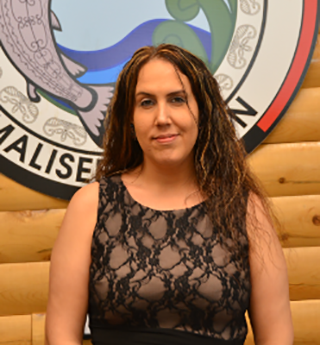
Jasmine Pirie
Finance, Band Businesses, Bereavement and Licensing; Education, Language & Post Secondary; Commercial Fisheries, AFS, FSC, Watershed; NB Power
Email: jasmine.pirie@neqotkuk.ca
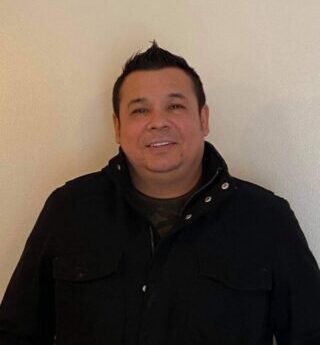
Adam Saulis
Youth Center, Recreation, Summer Games & Youth Park Project; Health Services, Addictions, Autism & Disabilities; Social Services, Headstart, Child & Family Services; Emergency Services, Security & Community Safety
Email: adam.saulis@neqotkuk.ca
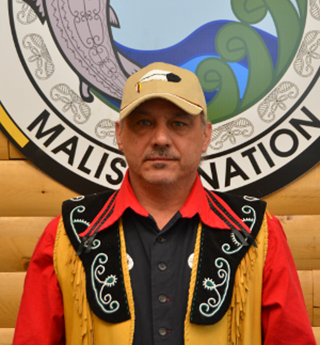
Edwin Bernard
Finance, Band Businesses, Bereavement and Licensing; Commercial Fisheries, AFS, FSC, Watershed; Commercial Forestry, Land Management & Jamer’s Mill; Capital, O & M, Infrastructure & Housing
Email: edwinbernard61@icloud.com
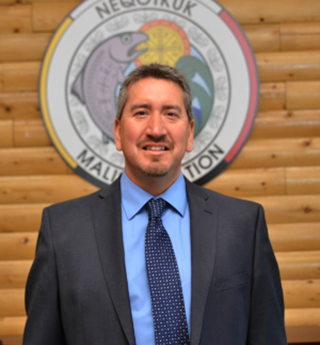
Brad Sappier
Commercial Fisheries, AFS, FSC, Watershed; Capital, O & M, Infrastructure & Housing; Economic Development, Additions to Reserve & Tourism; Food Security
Email: brad.sappier@neqotkuk.ca
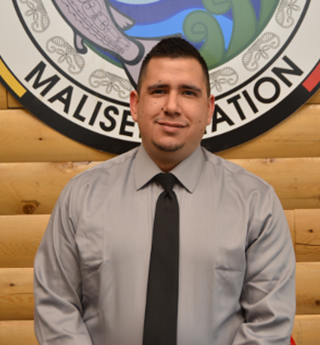
Julian Moulton
Education, Language & Post Secondary; NB Power; Labour Day, Pow-wow, Events & Cultural initiatives; Emergency Services, Security & Community Safety
Email: julian.moulton@neqotkuk.ca
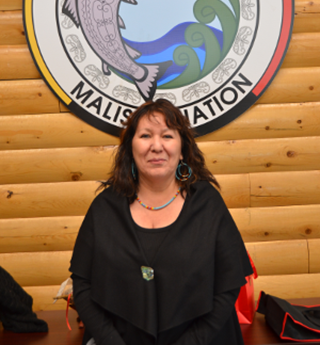
Tina Martin
Social Services, Headstart, Child & Family Services; Labour Day, Pow-wow, Events & Cultural initiatives; Emergency Services, Security & Community Safety; Elders Affairs & Elders Care Centre
Email: tmartin@nb.aibn.com
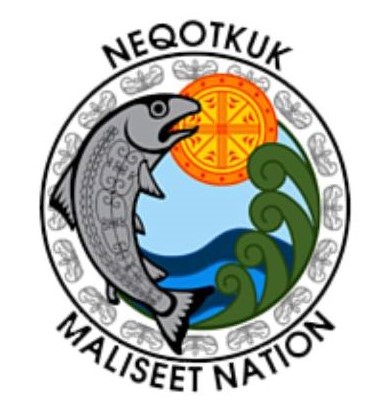
Aaron Nicholas
Commercial Forestry, Land Management & Jamer’s Mill; Health Services, Addictions, Autism & Disabilities; Social Services, Headstart, Child & Family Services; Economic Development, Additions to Reserve & Tourism
Email: aaron.nicholas@neqotkuk.ca
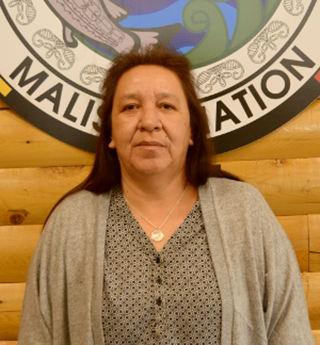
Kim Perley
Finance, Band Businesses, Bereavement and Licensing; Health Services, Addictions, Autism & Disabilities; Elders Affairs & Elders Care Centre; Employment & Training, Daycare
Email: tcfs01@hotmail.com

Donald Hafke
Capital, O & M, Infrastructure & Housing; Emergency Services, Security & Community Safety; Employment & Training, Daycare; Food Security
Email: donald.hafke@neqotkuk.ca
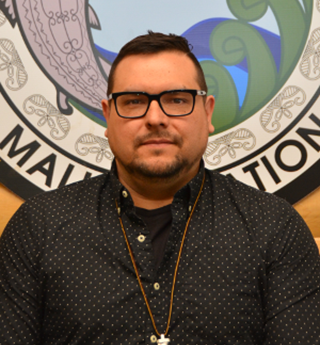
Shane Perley-Dutcher
Youth Center, Recreation, Summer Games & Youth Park Project; NB Power; Labour Day, Pow-wow, Events & Cultural initiatives; Economic Development, Additions to Reserve & Tourism
Email: shane.perleydutcher@neqotkuk.ca

Tim Nicholas-McDougall
Education, Language & Post Secondary; Commercial Forestry, Land Management & Jamer’s Mill; Economic Development, Additions to Reserve & Tourism; Food Security
Email: timothy.nicholasmcdougall@neqotkuk.ca
https://tobiquefirstnation.ca/forestry/
Tobique Forestry
Tobique Forestry operations consists of a community fuel wood processing, and distribution program partnered with the Social department, at no cost to the members.
Forestry also assists member owned forestry operations,
Such as cable skidders.
We coordinate an annual softwood allocation of 33000 cubic
meters, and 8900 cubic meters of hardwood.
We also contract with NB Power clearing
transmission lines.
Forestry employs approximately 20 seasonal, and 2 full time annually.
Contacts
13141 Route 105, Tobique First Nation, NB E7H 2Y8
Fred Bear
Director of Forestry/ Mill Manager
Phone: (506) 273 – 2883
Email: fbear330@gmail.com
Mike Bear
Operations Manager
Phone: (506) 280 – 0469
Email: mike.bear@neqotkuk.ca

